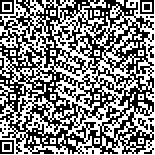| 摘要: |
| 尝试了多种方法分离中国明对虾(Fenneropenaeus chinensis)囊胚细胞和原肠胚细胞并进行了细胞培养。结果表明,解剖法适用于囊胚细胞,自行设计的压片法适用于原肠胚细胞。在培养起始阶段,通过降低血清浓度和缩小培养体系可使中国明对虾囊胚细胞和原肠胚细胞迅速贴壁并铺展,囊胚细胞铺展后有明显的生长晕,中后期原肠胚细胞较易达到半汇聚状态。值得注意的是,中国明对虾囊胚细胞在不同培养液中培养可发生形态上的分化。本实验方法有望用于对虾细胞分化机理和对虾细胞建系的研究。 |
| 关键词: 中国明对虾(Fenneropenaeus chinensis) 囊胚 原肠胚 细胞培养 |
| DOI: |
| 分类号: |
| 基金项目:国家973计划项目(2006CB101804); 国家863计划项目(2006AA10A401);国家自然科学基金项目(302002130) |
|
| Separation and In vitro culture of the cells of blastula and gastrula from the penaeid shrimp, Fenneropenaeus chinensis |
|
|
| Abstract: |
| To develop cell culture of penaeid shrimps, in vitro cell culture of the embryo, including the blastula and gastrula, of Fenneropenaeus chinensis was performed in this study. Viable blastula cells were obtained by dissecting the embryos (puncturing the chorion with fine acus and then gently pipetting the blastula cell mass), and good yields of viable gastrula cells were obtained by crushing the embryos gently. The attachment and spread of the embryonic cells could remarkably improved by decreasing the concentration of fetal bovine serum(FBS) and the volume of the culture medium at the beginning of the culture. After spreading, blastula cells took on growth hallow, but they couldn’t proliferate notably, while the cells of the developed for 13~18 h gastrula could easily become sub-confluent. However, passage of primary cultures resulted in the loss of adherence of cells. The medium used was 1×Leibovitz’s L-15 medium supplemented with 12.0 g/L NaCl, FBS and embryo extract of F. chinensis , and the concentration of FBS and the embryo extract was based on the need of different experiments. It was worth the whistle that the blastula cells cultured in different media could morphologically differentiate. |
| Key words: Fenneropenaeus chinensis blastula gastrula cell culture |
